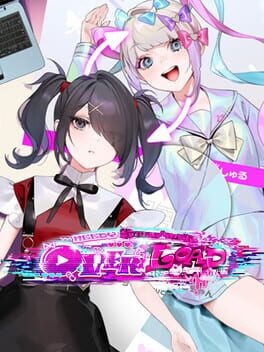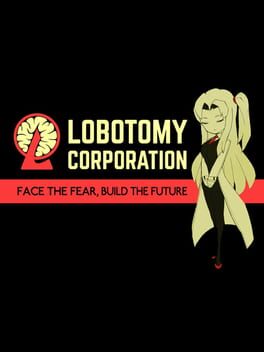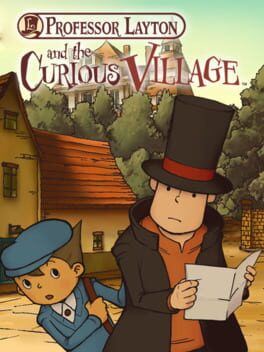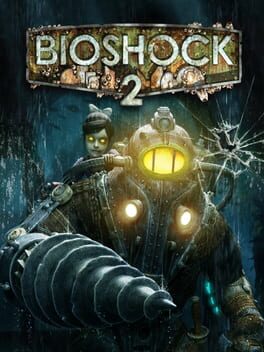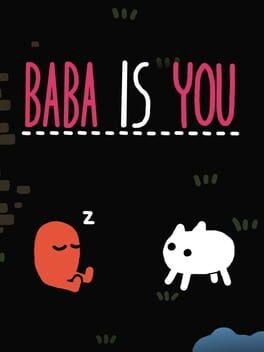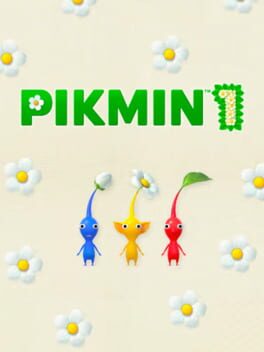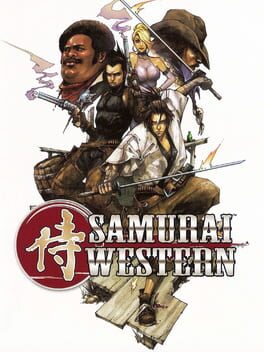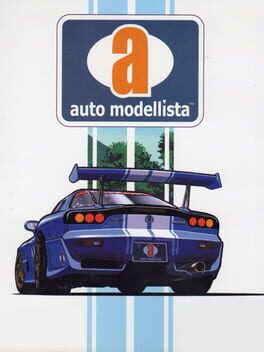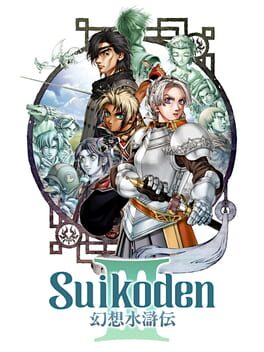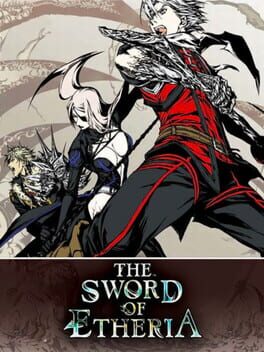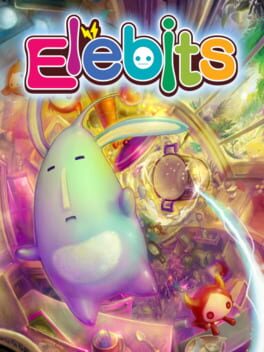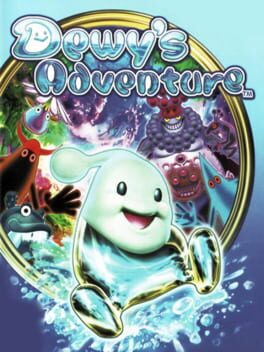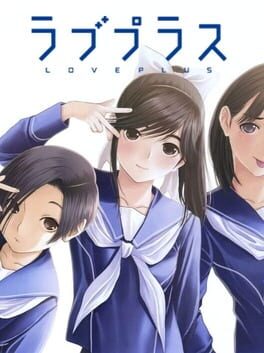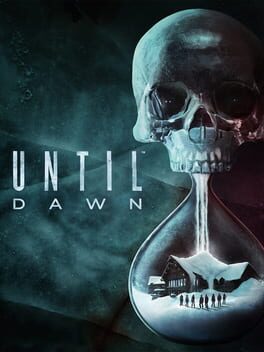Genesis
34 reviews liked by Genesis
Lobotomy Corporation
2018
BioShock 2
2010
BIOSHOCK 2: THE FIRST - AND BEST - SAD DAD GAME
I think about .hack//SIGN fairly frequently.
It’s one of my favorite anime and in my opinion the unmatched highlight of the series that it all but kickstarted, and could from a certain perspective be viewed as a witting deconstruction of the isekai genre that has come to dominate the landscape of modern anime (and light novels, from which most of said anime are spawned). Protagonist Tsukasa is an unlikeable loser like most Isekai main characters, only him being a gloomy, awkward and extremely callous person actively drives people away rather than them remaining glued to his side just for being there. The real-world problems that lead him to spend much of his time playing an MMO to begin with manifest in on-screen battles with mental illness and post-traumatic stress, often resulting in him breaking down or panicking on-screen with nobody around to help him. While Tsukasa’s character is extremely powerful, rather than being admired or fawned over he’s viewed as a cheater and all but exiled by the community around the game at large - which is just fine, as Tsukasa’s only power fantasy is being able to hurt the people who harass him just like he’s been hurt before. Beyond that he’s content to sit in isolation and be alone, completely rejecting the usual isekai wish-fulfillment standards such as power, valor and greatness. Hell, his eventual release from the game isn’t even won in some grand battle or accomplished of his own accord: a hacker forces the game to crash in a largely pragmatic act that just happens to release Tsukasa as a happily accidental side effect.
However, the problem with reading .hack//SIGN as a willing deconstruction is that it aired in 2002: roughly a decade before the isekai boom began in modern anime, when modern-day staples like Sword Art Online had only just begun being published and many modern classics of the genre were little more than fledgling ideas in their creators’ minds.
About a decade after .hack//SIGN’s original run the Western gaming sphere started to undergo a shift in and of itself, largely born from the heavier emphasis on cinematic storytelling introduced in the last few years of the 2000s in the West: in a phenomenon that was at the time colloquialized as the dadification of gaming, many of the at-the-time golden children of the yearly release cycles prominently featured a middle-aged man as its protagonist, who is then thrust into an unwitting or unwilling role as a father figure to a child or young teen. The Last Of Us, God of War (2018), Telltale’s The Walking Dead, LISA: The Painful, Heavy Rain, and even the directly-relevant-to-this-conversation BioShock Infinite are some of the most famous examples of the (often-pejoratively nicknamed) sad dad game, a microgenre treasured by some and loathed by increasingly more as the years go on.
You can see, then, why I thought about .hack//SIGN so often while I was replaying BioShock 2. BioShock 2 appears to willingly interrogate and analyze the very foundation of the “sad dad game,” or rather it would if not for the fact that it was released in February of 2010 - which was before any of the other games I mentioned earlier. I’d go as far as to wager that BioShock 2 may very well be the first game of its kind.
At the most core level “sad dad games,” by and large, aren’t actually about parenting. The burden of caring for a child is more often than not just that, a burden for the protagonist to endure, overcome, and eventually accept. With this the focus is not on the child but on the ubiquitous manpain of the protagonist, rife with dead wives, dead children and the grizzled worldviews that often result from the trauma of the protagonists the games focus on. Players are guided down a linear tract of story beads where their failure to “parent well” more often results in the death of their child, the usually-stern manner in which they guide the child (usually little more than an NPC for a 15-hour escort mission) otherwise presented with little question beyond the occasional gray morality or hints at a more unfortunate reality beneath the surface of the parent-child relationship.
BioShock 2, meanwhile, fundamentally understands that parenting is not simply taking care of a helpless child and that best intentions a good parent does not make. Delta, the protagonist of BioShock 2, is similar to the archetypical “sad dad” in that he did not necessarily want his daughter Eleanor nor was he in control of the circumstances that led to the establishment of their bond. The point that Delta (and his story) proves is that regardless of one’s efforts to be a good parent - or lack thereof - we impact our children and mold who they are simply by existing, even if we erect barriers to hide our children from the horrifying humanity of their idols or make a conscious effort to sever that tie wherever possible. Delta is obligated to action by Eleanor’s pleas for his assistance, but his actions are otherwise independent of her influence… but, inversely, Eleanor is not unaffected by Delta’s choices and their own influence.
One more innovation of modern gaming - particularly in the roleplaying sector that had its own boom in the mid-to-late 2000s, of which both BioShock games can be considered a part - is the morality system, in which choices are purported to make a genuine impact on the world around them and be able to play any way they want. While fine enough in theory, the morality system has earned something of a reputation as a joke within the greater audiences of the games that employ them: typically there is precious little room for nuance or gray areas in the options available to the player and the subsequent characterization of its protagonist, with the two tracts of ethics usually presenting a hard swerve between “angelic paragon of virtue” and “second coming of every historical despot”. Worst of all, most of the time playing a morally good character often means abstaining entirely from a solid chunk of the game at hand’s mechanics (usually some of the more fun and inventive ones, particularly in games that seek to paint acts of violence as an indiscriminate and non-negotiable evil), thus meaning that the player cannot reconcile their desired playstyle with the type of character they wish to play. There is potential for these limitations to be meaningfully integrated and result in ludonarrative harmony, but such potential often goes unexplored or underdeveloped and in the end the game is saddled by excess that provides little more than excess baggage that would better be left by the wayside.
Consider me surprised, then, that BioShock 2 not only has one of the most robust and complex takes on a morality system in a modern game (if not the most robust and complex) but that it almost almost completely leaves the game unfettered by its presence: there are marginal mechanical benefits to certain moral choices, but those are equally matched by mechanical benefits on the opposing side of the moral divide. The choices that Delta makes thereby become displays of his character at the player’s whim more than pragmatic decisions made so that one can have fun in the way that they choose while also roleplaying Delta in a way that befits the narrative they choose to tell. Moreover, certain conventionally-evil actions do not exclude Delta from erring on the side of good, nor do occasional acts of altruism necessarily negate any other wrongdoing he might knowingly cause on his journey through Rapture.
Of course, BioShock 2’s morality system is not wholly excluded from the storytelling, nor does it deserve commendation off the basis of an apparent lack of investment in making Delta’s morals factor into anything more than the plot itself. Remember: Delta is a father, and parents inevitably and unavoidably mold their children in their image regardless of intent, desire or forethought.
Eleanor, in essence, is BioShock 2’s morality system: while Delta will be relatively unaffected by his own choices short of certain practical benefits (namely in the amount of supplies and resources available at his disposal, or more accurately which supplies and resources) Eleanor is watching his each and every move, learning from him, and drawing her own conclusions and lessons from the whole that is synthesized out of Delta’s actions, choices, and the throughlines (or lack thereof) therein. Delta is but one man, and while he is a mere drop in the veritable ocean of opposing forces, ideologies and ethics in Rapture there is nobody more important in the world to Eleanor than Delta. Much like other games of the period Delta’s choices fail to make a meaningful impact on the world at large or the specifics of his story, but then they don’t really need to. To the one and only person to whom he is absolutely everything, Delta’s path is the word of God and the example that must be followed under any and all circumstances.
Our children inherit most facets of our being not only without regard for if we intend to pass ourselves on, but whether or not they intend to be molded so intensely by us, even in our absence. Some grow up idolizing their parents and embodying the cliche of wanting to be just like Dad, while others end up haunted by their childhood experiences long after the fact in spite of putting every possible barrier between themselves and their predecessors. Regardless, all must eventually face the reality that their parents were people with complexities, idiosyncrasies, and contradictions much like their own, and that the inherent isolation of bearing a conscious mind means that they will eventually have to accept they may never have answers to the questions they have about their parents and the upbringing they gave them.
Eleanor is no different: the archetypal sad dad game ends with tentative understanding and unconditional acceptance between the father and child, but what lessons Delta leaves Eleanor with in the wake of his death are for her understanding and her understanding only. Though Delta does not speak and his choices are entirely at the whims of the player, he is given characterization and definition through Eleanor’s understanding of their time together and the conclusions she came to about things left unsaid and questions left unanswered, dependent not on a single variable but on the specific interplay of the many different variables at play as Eleanor looks upon Delta’s legacy in retrospect. She may consider Delta to be an unconditionally kind soul who believed in forgiveness and redemption for all who were willing to change, she may consider Delta to be a protector of the meek and innocent who brought righteous vengeance down upon the wicked, she may see Delta’s cutthroat survival tactics as a necessary evil in a cruel world, or she may take the brunt of Delta’s malevolence and seek to perpetuate the cycle of violence that he was unable to break or escape. She may even find herself confused and conflicted by the contradictory manner in which Delta lived, unable to find clarity or answers in his absence and left wondering for the rest of her days.
Most remarkable to me is the ending in which Delta exhibited sin and virtue alike in equal measure and is given a final choice at the game’s conclusion: to save himself by allowing Eleanor to harvest his essence and let him live through her, or to deny her the opportunity and let himself die a true, final death rather than let an individual such as himself carry on through the world. Should Delta choose the latter Eleanor will interpret his actions as an acknowledgement of his own role in perpetuating the cycle and willingly breaking it with his own death, choosing to give Eleanor a chance to begin anew and redeem herself by living in the way that he never could. The amount of nuance in the conclusions that Eleanor can come to depending on the life Delta lived is frankly unprecedented even today, and not only do I find other “sad dad” narratives even more unfulfilling in the wake of BioShock 2 but I also question why morality systems in games continue to only have two or three options by which a player’s ethics and morals might be defined or framed.
Regardless of whether he meets a final end atop the lighthouse or if his consciousness lives on as a part of Eleanor’s, Delta’s spirit continues to linger even in his death: in the best of outcomes Eleanor declares that Delta is her conscience, always whispering over her shoulder even in his absence, and in the worst of outcomes Eleanor resigns herself to the fact that Delta never wanted her but he defined her nonetheless… even if only in his apathy and the misanthropy he was willing to show the world around him, including his own daughter. We cannot escape the ways in which we were raised and the ways in which we were not raised, nor can we ever have full control over the ways in which we impact our own children. BioShock 2 understands that better than practically all of its contemporaries as perhaps the first and only “sad dad game” that is actually about being a parent.
Naturally, BioShock 2 is not content to simply ruminate on the nature of parenting with relation to the introspective elements of its writing: while it’s true that BioShock 2 is far more of a character-driven story than its predecessor, I think it’s disingenuous-at-best to write it off as inferior off the basis of less focus being put on its political writing… namely because I think the political writing in BioShock 2 not only builds upon the original game’s messaging but elevates it into being one part of a greater whole, recontextualizing the overarching narrative about the manner in which extremist ideologies dehumanize those who live under their standards, regardless of the direction in which the political ideals themselves swing.
With this in mind an elephant in the room must be addressed before proceeding any further: BioShock’s politics are often notoriously misguided in intent even if the result ends up transcending the vision of the writers at hand. BioShock is a satire of libertarianism written by a libertarian, and BioShock 2’s attempt at critiquing socialism is rooted in a desire to espouse an act of divine centrism: have we considered that both sides are bad?
As with the Persona series however, these misguided-at-best intentions couple with a specific form of illiteracy in the topics they cover to create largely-accidental but nonetheless-astute takeaways that reach far beyond the original intent. In the specific case of BioShock 2, Andrew Ryan’s objectivist ideals are contrasted against his diametric opposite in Sofia Lamb and her collectivist vision of a united Rapture: Ryan held deep-seated convictions that every man should live for himself and himself alone, every man to be thought of as little more than obstacles to be overturned on one’s own path to greatness or exploited for one’s own profit.
Considering that capitalism is in and of itself a cult developed to the glorification and surrender of all values to the pursuit of feeding the beast (masquerading as worship of one’s own id), one might find it perplexing that the far-left opposite of Ryan’s beliefs are framed as a cult. However, I believe that the parallel works in the context of demonstrating the commonality between these two otherwise-incompatible belief systems: systematic dehumanization and clinical adherence to one’s ideals over the practical effects on the people who live under these ideologies. Lamb maintains a belief that the value of the individual self should be all but exterminated, so that one may throw themselves away in their entirety to the perceived benefit of their community. In The Rapture Family individual people are denied personhood and significance as anything more than droplets in the great ocean, viewed as worthless and worthy of being snuffed out if they maintain any semblance of identity or individual desire beyond mindless submission.
With this in mind I believe that BioShock 2 in turn contextualizes the duology’s overarching message as one that stresses the importance of compassion and goodwill, regardless of the ideology one believes in or the practices by which they go about making it a reality. Be it in a libertarian hellscape or an oppressive authoritarian dystopia, the means by which one can remove themselves from the systems entirely is to not only care about your fellow man but care about yourself enough to break the chains that bind you and lead the people around you to do the same. This is not to say that BioShock has any delusions of pacifism or grand anti-violence messages (after all, it is still a series of games about shooting people and violent pushback against one’s destined fate), however one sentiment rings truer than anything else with the entirety of the duology in mind: while compassion alone will not break the cycle of violence nor dismantle the power structures that perpetuate them, compassion is the foundation upon which the new world will be built. If one should take up arms and raise hell upon the world around them, let it be in hopes that their successors will never have to do so themselves.
Thus Eleanor once again re-asserts herself as the centerpiece upon which BioShock 2 is built: she is not only Delta’s living legacy, but a representation of the generation that follows our own and carries forth our ideals, hopes, dreams, and inherits the world we leave for them. Lamb needn’t have erected the perfect utopia that she dreamed of by turning her daughter into a vessel for all of Rapture’s thoughts, dreams and memories - she could have just as easily done her part to lay the foundation of her utopia by connecting with her daughter and personally instilling her ideals of compassion and benevolence into her. Perhaps Lamb’s self-flagellating guilt over her own perceived flaws and selfishness caused her to sever any emotional ties to her daughter and use her as the sacrificial lamb (pun wholly intended) needed to bring about an unconditionally-unified society, but then that distance caused more damage than her daughter viewing her as the human being she was ever could.
It’s a bitterly, depressingly vivid portrayal of an all-too-common conundrum that many children face in their relationship with their parents: for one reason or another, parents will go to indescribable and unexplainable lengths to avoid connecting with their children and opening themselves up to the risk of doing it “wrong.” Again: our children inherit our traumas, flaws and unsightly quirks regardless of whether we intend for them to do so or not, and attempting to avoid that reality only causes more damage than the horrifying ordeal of being known ever possibly could. In the majority of the endings Eleanor comes to see Delta as the person he is, warts and all, and grows all the better for it: I don’t think it’s a coincidence that all the endings in which Delta denies Eleanor his love and compassion are the ones where she is content to perpetuate the cycle and take Rapture’s industrialized violence global, both of her parents having caused more damage in their absence than they could have possibly imagined they would have with their presence.
Now, we all know that BioShock 2 appears to have been purpose-built to analyze and pick apart a microgenre that it preceded in almost its entirety and still remains the best sad dad game in spite of likely being the very first one, and we know about the uniquely complex manner in which the player’s choices intersect with the narrative and its messages on parenthood and compassion… but how does it play? Not in terms of decision-making or ludonarrative, but the whole “shooting people” thing you do for the vast majority of the game’s ~25-hour runtime.
In a word? It’s perfect.
I disagree with the common assessment that BioShock 2 has “better gameplay but a worse story” than the original in its entirety, but honestly BioShock 1’s writing is pretty one-note and paper-thin outside of its political satire to begin with. The strength of the writing in BioShock 2 combined with the extent to which it perfected BioShock 1’s gameplay loop and ironed out every single kink is such a step up in every single direction that I’m surprised BioShock 2 isn’t the one often-lauded as one of the all-time greatest games and subject to constant scrutiny and scholarly analysis.
When I replayed BioShock I found the ideas at play charming, but a bit unrefined and one-note by current-day standards: for as many tools as you have at your disposal you’re still basically running around narrow corridors and wide-open arenas shooting at people. When playing 2, it’s amazing what making a few changes and trimming a bit of the fat can do: being able to wield a weapon and a Plasmid at the same time does wonders for finding combinations that synergize and changing strategies on the fly, while mechanics like the hacking system being simultaneously streamlined via a new minigame and expanded by means of the hack gun, the “bonus hack” mechanic and additions to the hacked-turret system are a much-needed second wind to systems that felt like cumbersome but necessary evils in the original game. The selection of weapons is well-rounded with each-one feeling fantastic and having a multitude of distinct situational strengths, as well as reinforcing one of the ultimate draws of BioShock 2’s combat: you feel like a Big Daddy, with weapons like the drill (and especially the drill dash technique) and minigun being a perfect measure of the distance between Delta and Jack (the protagonist of BioShock 1): Jack swung a wrench and wielded a tommy gun, whereas Delta carries the same drill used against the player in the previous game and holds a full-sized minigun with one hand.
All of these traits are given ample opportunity to shine with the game’s level designs, which feel far more tight-knit, detailed and full of chances to explore than the previous games… and with good reason, too: rather than constantly being on the offense as in the original BioShock, the Little Sister adoption system (and the recurring miniboss of the Big Sister that comes along with it) offers a welcome change in pace a few times per level where the tables turn and Delta is put on the defense, with some of the underutilized defensive elements of the original game (such as the Cyclone Trap plasmid, or the electric trap bolts used by the crossbow and harpoon gun). An element of strategy is introduced as the player is made to case their surroundings and lay traps, erect defensive measures such as turrets and tripwires, and ensure that all their bases are covered with regards to potential exits and entrances for the enemy mob to enter… not to mention the frantic scramble to find an optimal defensive position once the Big Sister’s shrieks announce her imminent presence. It’s another example of the aforementioned feeling of being a Big Daddy: not only is Delta an impossibly-strong manmade monstrosity, he is first and foremost a protector. Hell hath no fury like a large man with a large drill when his daughter cries for help.
In other words, it’s as remarkable of an achievement in terms of mechanics as it is narrative and ludonarrative. I still can’t comprehend why this is viewed as the ugly duckling of the trilogy when I view it to be the only truly great game out of the bunch, much less one of the greatest games I’ve ever played.
BioShock 2 makes a few missteps on the way there - some of the moral choices are a tad underdeveloped and over-reliant on verbal exposition rather than the environmental storytelling and non-linear piecing-together of the pieces that the Shock metaseries has always excelled at, and some might not be able to reconcile the writers’ political intents with what they inadvertently say (as well as BioShock 2 following the “sad dad trend” of condemning mother figures while focusing father figures) - but it never strays from its own path, nor is the journey or the destination any less exhilarating, thought-provoking, or remarkable of a work of art nor any less groundbreaking an achievement some thirteen years on. While it had been my favorite out of the entire series since its release, I was only 11-12 years old during my first playthrough and wasn’t expecting nor prepared to find so much depth and finesse in the manner in which it conveys its ideas upon a replay.
In sum: BioShock 2 is one of the greatest games ever made, very definitely the best game to come out of the era of the first-person shooter’s dominance in the seventh console generation, the best -shock game, and the best - and the first - sad dad game. It isn’t every day that you see one of the first (or indeed the first) example of a burgeoning genre outmatch all of its successors… and it was all done without the influence of Ken Levine too, thus proving once and for all that he’s a hack who has never and will never know what the fuck he’s talking about.
I think about .hack//SIGN fairly frequently.
It’s one of my favorite anime and in my opinion the unmatched highlight of the series that it all but kickstarted, and could from a certain perspective be viewed as a witting deconstruction of the isekai genre that has come to dominate the landscape of modern anime (and light novels, from which most of said anime are spawned). Protagonist Tsukasa is an unlikeable loser like most Isekai main characters, only him being a gloomy, awkward and extremely callous person actively drives people away rather than them remaining glued to his side just for being there. The real-world problems that lead him to spend much of his time playing an MMO to begin with manifest in on-screen battles with mental illness and post-traumatic stress, often resulting in him breaking down or panicking on-screen with nobody around to help him. While Tsukasa’s character is extremely powerful, rather than being admired or fawned over he’s viewed as a cheater and all but exiled by the community around the game at large - which is just fine, as Tsukasa’s only power fantasy is being able to hurt the people who harass him just like he’s been hurt before. Beyond that he’s content to sit in isolation and be alone, completely rejecting the usual isekai wish-fulfillment standards such as power, valor and greatness. Hell, his eventual release from the game isn’t even won in some grand battle or accomplished of his own accord: a hacker forces the game to crash in a largely pragmatic act that just happens to release Tsukasa as a happily accidental side effect.
However, the problem with reading .hack//SIGN as a willing deconstruction is that it aired in 2002: roughly a decade before the isekai boom began in modern anime, when modern-day staples like Sword Art Online had only just begun being published and many modern classics of the genre were little more than fledgling ideas in their creators’ minds.
About a decade after .hack//SIGN’s original run the Western gaming sphere started to undergo a shift in and of itself, largely born from the heavier emphasis on cinematic storytelling introduced in the last few years of the 2000s in the West: in a phenomenon that was at the time colloquialized as the dadification of gaming, many of the at-the-time golden children of the yearly release cycles prominently featured a middle-aged man as its protagonist, who is then thrust into an unwitting or unwilling role as a father figure to a child or young teen. The Last Of Us, God of War (2018), Telltale’s The Walking Dead, LISA: The Painful, Heavy Rain, and even the directly-relevant-to-this-conversation BioShock Infinite are some of the most famous examples of the (often-pejoratively nicknamed) sad dad game, a microgenre treasured by some and loathed by increasingly more as the years go on.
You can see, then, why I thought about .hack//SIGN so often while I was replaying BioShock 2. BioShock 2 appears to willingly interrogate and analyze the very foundation of the “sad dad game,” or rather it would if not for the fact that it was released in February of 2010 - which was before any of the other games I mentioned earlier. I’d go as far as to wager that BioShock 2 may very well be the first game of its kind.
At the most core level “sad dad games,” by and large, aren’t actually about parenting. The burden of caring for a child is more often than not just that, a burden for the protagonist to endure, overcome, and eventually accept. With this the focus is not on the child but on the ubiquitous manpain of the protagonist, rife with dead wives, dead children and the grizzled worldviews that often result from the trauma of the protagonists the games focus on. Players are guided down a linear tract of story beads where their failure to “parent well” more often results in the death of their child, the usually-stern manner in which they guide the child (usually little more than an NPC for a 15-hour escort mission) otherwise presented with little question beyond the occasional gray morality or hints at a more unfortunate reality beneath the surface of the parent-child relationship.
BioShock 2, meanwhile, fundamentally understands that parenting is not simply taking care of a helpless child and that best intentions a good parent does not make. Delta, the protagonist of BioShock 2, is similar to the archetypical “sad dad” in that he did not necessarily want his daughter Eleanor nor was he in control of the circumstances that led to the establishment of their bond. The point that Delta (and his story) proves is that regardless of one’s efforts to be a good parent - or lack thereof - we impact our children and mold who they are simply by existing, even if we erect barriers to hide our children from the horrifying humanity of their idols or make a conscious effort to sever that tie wherever possible. Delta is obligated to action by Eleanor’s pleas for his assistance, but his actions are otherwise independent of her influence… but, inversely, Eleanor is not unaffected by Delta’s choices and their own influence.
One more innovation of modern gaming - particularly in the roleplaying sector that had its own boom in the mid-to-late 2000s, of which both BioShock games can be considered a part - is the morality system, in which choices are purported to make a genuine impact on the world around them and be able to play any way they want. While fine enough in theory, the morality system has earned something of a reputation as a joke within the greater audiences of the games that employ them: typically there is precious little room for nuance or gray areas in the options available to the player and the subsequent characterization of its protagonist, with the two tracts of ethics usually presenting a hard swerve between “angelic paragon of virtue” and “second coming of every historical despot”. Worst of all, most of the time playing a morally good character often means abstaining entirely from a solid chunk of the game at hand’s mechanics (usually some of the more fun and inventive ones, particularly in games that seek to paint acts of violence as an indiscriminate and non-negotiable evil), thus meaning that the player cannot reconcile their desired playstyle with the type of character they wish to play. There is potential for these limitations to be meaningfully integrated and result in ludonarrative harmony, but such potential often goes unexplored or underdeveloped and in the end the game is saddled by excess that provides little more than excess baggage that would better be left by the wayside.
Consider me surprised, then, that BioShock 2 not only has one of the most robust and complex takes on a morality system in a modern game (if not the most robust and complex) but that it almost almost completely leaves the game unfettered by its presence: there are marginal mechanical benefits to certain moral choices, but those are equally matched by mechanical benefits on the opposing side of the moral divide. The choices that Delta makes thereby become displays of his character at the player’s whim more than pragmatic decisions made so that one can have fun in the way that they choose while also roleplaying Delta in a way that befits the narrative they choose to tell. Moreover, certain conventionally-evil actions do not exclude Delta from erring on the side of good, nor do occasional acts of altruism necessarily negate any other wrongdoing he might knowingly cause on his journey through Rapture.
Of course, BioShock 2’s morality system is not wholly excluded from the storytelling, nor does it deserve commendation off the basis of an apparent lack of investment in making Delta’s morals factor into anything more than the plot itself. Remember: Delta is a father, and parents inevitably and unavoidably mold their children in their image regardless of intent, desire or forethought.
Eleanor, in essence, is BioShock 2’s morality system: while Delta will be relatively unaffected by his own choices short of certain practical benefits (namely in the amount of supplies and resources available at his disposal, or more accurately which supplies and resources) Eleanor is watching his each and every move, learning from him, and drawing her own conclusions and lessons from the whole that is synthesized out of Delta’s actions, choices, and the throughlines (or lack thereof) therein. Delta is but one man, and while he is a mere drop in the veritable ocean of opposing forces, ideologies and ethics in Rapture there is nobody more important in the world to Eleanor than Delta. Much like other games of the period Delta’s choices fail to make a meaningful impact on the world at large or the specifics of his story, but then they don’t really need to. To the one and only person to whom he is absolutely everything, Delta’s path is the word of God and the example that must be followed under any and all circumstances.
Our children inherit most facets of our being not only without regard for if we intend to pass ourselves on, but whether or not they intend to be molded so intensely by us, even in our absence. Some grow up idolizing their parents and embodying the cliche of wanting to be just like Dad, while others end up haunted by their childhood experiences long after the fact in spite of putting every possible barrier between themselves and their predecessors. Regardless, all must eventually face the reality that their parents were people with complexities, idiosyncrasies, and contradictions much like their own, and that the inherent isolation of bearing a conscious mind means that they will eventually have to accept they may never have answers to the questions they have about their parents and the upbringing they gave them.
Eleanor is no different: the archetypal sad dad game ends with tentative understanding and unconditional acceptance between the father and child, but what lessons Delta leaves Eleanor with in the wake of his death are for her understanding and her understanding only. Though Delta does not speak and his choices are entirely at the whims of the player, he is given characterization and definition through Eleanor’s understanding of their time together and the conclusions she came to about things left unsaid and questions left unanswered, dependent not on a single variable but on the specific interplay of the many different variables at play as Eleanor looks upon Delta’s legacy in retrospect. She may consider Delta to be an unconditionally kind soul who believed in forgiveness and redemption for all who were willing to change, she may consider Delta to be a protector of the meek and innocent who brought righteous vengeance down upon the wicked, she may see Delta’s cutthroat survival tactics as a necessary evil in a cruel world, or she may take the brunt of Delta’s malevolence and seek to perpetuate the cycle of violence that he was unable to break or escape. She may even find herself confused and conflicted by the contradictory manner in which Delta lived, unable to find clarity or answers in his absence and left wondering for the rest of her days.
Most remarkable to me is the ending in which Delta exhibited sin and virtue alike in equal measure and is given a final choice at the game’s conclusion: to save himself by allowing Eleanor to harvest his essence and let him live through her, or to deny her the opportunity and let himself die a true, final death rather than let an individual such as himself carry on through the world. Should Delta choose the latter Eleanor will interpret his actions as an acknowledgement of his own role in perpetuating the cycle and willingly breaking it with his own death, choosing to give Eleanor a chance to begin anew and redeem herself by living in the way that he never could. The amount of nuance in the conclusions that Eleanor can come to depending on the life Delta lived is frankly unprecedented even today, and not only do I find other “sad dad” narratives even more unfulfilling in the wake of BioShock 2 but I also question why morality systems in games continue to only have two or three options by which a player’s ethics and morals might be defined or framed.
Regardless of whether he meets a final end atop the lighthouse or if his consciousness lives on as a part of Eleanor’s, Delta’s spirit continues to linger even in his death: in the best of outcomes Eleanor declares that Delta is her conscience, always whispering over her shoulder even in his absence, and in the worst of outcomes Eleanor resigns herself to the fact that Delta never wanted her but he defined her nonetheless… even if only in his apathy and the misanthropy he was willing to show the world around him, including his own daughter. We cannot escape the ways in which we were raised and the ways in which we were not raised, nor can we ever have full control over the ways in which we impact our own children. BioShock 2 understands that better than practically all of its contemporaries as perhaps the first and only “sad dad game” that is actually about being a parent.
Naturally, BioShock 2 is not content to simply ruminate on the nature of parenting with relation to the introspective elements of its writing: while it’s true that BioShock 2 is far more of a character-driven story than its predecessor, I think it’s disingenuous-at-best to write it off as inferior off the basis of less focus being put on its political writing… namely because I think the political writing in BioShock 2 not only builds upon the original game’s messaging but elevates it into being one part of a greater whole, recontextualizing the overarching narrative about the manner in which extremist ideologies dehumanize those who live under their standards, regardless of the direction in which the political ideals themselves swing.
With this in mind an elephant in the room must be addressed before proceeding any further: BioShock’s politics are often notoriously misguided in intent even if the result ends up transcending the vision of the writers at hand. BioShock is a satire of libertarianism written by a libertarian, and BioShock 2’s attempt at critiquing socialism is rooted in a desire to espouse an act of divine centrism: have we considered that both sides are bad?
As with the Persona series however, these misguided-at-best intentions couple with a specific form of illiteracy in the topics they cover to create largely-accidental but nonetheless-astute takeaways that reach far beyond the original intent. In the specific case of BioShock 2, Andrew Ryan’s objectivist ideals are contrasted against his diametric opposite in Sofia Lamb and her collectivist vision of a united Rapture: Ryan held deep-seated convictions that every man should live for himself and himself alone, every man to be thought of as little more than obstacles to be overturned on one’s own path to greatness or exploited for one’s own profit.
Considering that capitalism is in and of itself a cult developed to the glorification and surrender of all values to the pursuit of feeding the beast (masquerading as worship of one’s own id), one might find it perplexing that the far-left opposite of Ryan’s beliefs are framed as a cult. However, I believe that the parallel works in the context of demonstrating the commonality between these two otherwise-incompatible belief systems: systematic dehumanization and clinical adherence to one’s ideals over the practical effects on the people who live under these ideologies. Lamb maintains a belief that the value of the individual self should be all but exterminated, so that one may throw themselves away in their entirety to the perceived benefit of their community. In The Rapture Family individual people are denied personhood and significance as anything more than droplets in the great ocean, viewed as worthless and worthy of being snuffed out if they maintain any semblance of identity or individual desire beyond mindless submission.
With this in mind I believe that BioShock 2 in turn contextualizes the duology’s overarching message as one that stresses the importance of compassion and goodwill, regardless of the ideology one believes in or the practices by which they go about making it a reality. Be it in a libertarian hellscape or an oppressive authoritarian dystopia, the means by which one can remove themselves from the systems entirely is to not only care about your fellow man but care about yourself enough to break the chains that bind you and lead the people around you to do the same. This is not to say that BioShock has any delusions of pacifism or grand anti-violence messages (after all, it is still a series of games about shooting people and violent pushback against one’s destined fate), however one sentiment rings truer than anything else with the entirety of the duology in mind: while compassion alone will not break the cycle of violence nor dismantle the power structures that perpetuate them, compassion is the foundation upon which the new world will be built. If one should take up arms and raise hell upon the world around them, let it be in hopes that their successors will never have to do so themselves.
Thus Eleanor once again re-asserts herself as the centerpiece upon which BioShock 2 is built: she is not only Delta’s living legacy, but a representation of the generation that follows our own and carries forth our ideals, hopes, dreams, and inherits the world we leave for them. Lamb needn’t have erected the perfect utopia that she dreamed of by turning her daughter into a vessel for all of Rapture’s thoughts, dreams and memories - she could have just as easily done her part to lay the foundation of her utopia by connecting with her daughter and personally instilling her ideals of compassion and benevolence into her. Perhaps Lamb’s self-flagellating guilt over her own perceived flaws and selfishness caused her to sever any emotional ties to her daughter and use her as the sacrificial lamb (pun wholly intended) needed to bring about an unconditionally-unified society, but then that distance caused more damage than her daughter viewing her as the human being she was ever could.
It’s a bitterly, depressingly vivid portrayal of an all-too-common conundrum that many children face in their relationship with their parents: for one reason or another, parents will go to indescribable and unexplainable lengths to avoid connecting with their children and opening themselves up to the risk of doing it “wrong.” Again: our children inherit our traumas, flaws and unsightly quirks regardless of whether we intend for them to do so or not, and attempting to avoid that reality only causes more damage than the horrifying ordeal of being known ever possibly could. In the majority of the endings Eleanor comes to see Delta as the person he is, warts and all, and grows all the better for it: I don’t think it’s a coincidence that all the endings in which Delta denies Eleanor his love and compassion are the ones where she is content to perpetuate the cycle and take Rapture’s industrialized violence global, both of her parents having caused more damage in their absence than they could have possibly imagined they would have with their presence.
Now, we all know that BioShock 2 appears to have been purpose-built to analyze and pick apart a microgenre that it preceded in almost its entirety and still remains the best sad dad game in spite of likely being the very first one, and we know about the uniquely complex manner in which the player’s choices intersect with the narrative and its messages on parenthood and compassion… but how does it play? Not in terms of decision-making or ludonarrative, but the whole “shooting people” thing you do for the vast majority of the game’s ~25-hour runtime.
In a word? It’s perfect.
I disagree with the common assessment that BioShock 2 has “better gameplay but a worse story” than the original in its entirety, but honestly BioShock 1’s writing is pretty one-note and paper-thin outside of its political satire to begin with. The strength of the writing in BioShock 2 combined with the extent to which it perfected BioShock 1’s gameplay loop and ironed out every single kink is such a step up in every single direction that I’m surprised BioShock 2 isn’t the one often-lauded as one of the all-time greatest games and subject to constant scrutiny and scholarly analysis.
When I replayed BioShock I found the ideas at play charming, but a bit unrefined and one-note by current-day standards: for as many tools as you have at your disposal you’re still basically running around narrow corridors and wide-open arenas shooting at people. When playing 2, it’s amazing what making a few changes and trimming a bit of the fat can do: being able to wield a weapon and a Plasmid at the same time does wonders for finding combinations that synergize and changing strategies on the fly, while mechanics like the hacking system being simultaneously streamlined via a new minigame and expanded by means of the hack gun, the “bonus hack” mechanic and additions to the hacked-turret system are a much-needed second wind to systems that felt like cumbersome but necessary evils in the original game. The selection of weapons is well-rounded with each-one feeling fantastic and having a multitude of distinct situational strengths, as well as reinforcing one of the ultimate draws of BioShock 2’s combat: you feel like a Big Daddy, with weapons like the drill (and especially the drill dash technique) and minigun being a perfect measure of the distance between Delta and Jack (the protagonist of BioShock 1): Jack swung a wrench and wielded a tommy gun, whereas Delta carries the same drill used against the player in the previous game and holds a full-sized minigun with one hand.
All of these traits are given ample opportunity to shine with the game’s level designs, which feel far more tight-knit, detailed and full of chances to explore than the previous games… and with good reason, too: rather than constantly being on the offense as in the original BioShock, the Little Sister adoption system (and the recurring miniboss of the Big Sister that comes along with it) offers a welcome change in pace a few times per level where the tables turn and Delta is put on the defense, with some of the underutilized defensive elements of the original game (such as the Cyclone Trap plasmid, or the electric trap bolts used by the crossbow and harpoon gun). An element of strategy is introduced as the player is made to case their surroundings and lay traps, erect defensive measures such as turrets and tripwires, and ensure that all their bases are covered with regards to potential exits and entrances for the enemy mob to enter… not to mention the frantic scramble to find an optimal defensive position once the Big Sister’s shrieks announce her imminent presence. It’s another example of the aforementioned feeling of being a Big Daddy: not only is Delta an impossibly-strong manmade monstrosity, he is first and foremost a protector. Hell hath no fury like a large man with a large drill when his daughter cries for help.
In other words, it’s as remarkable of an achievement in terms of mechanics as it is narrative and ludonarrative. I still can’t comprehend why this is viewed as the ugly duckling of the trilogy when I view it to be the only truly great game out of the bunch, much less one of the greatest games I’ve ever played.
BioShock 2 makes a few missteps on the way there - some of the moral choices are a tad underdeveloped and over-reliant on verbal exposition rather than the environmental storytelling and non-linear piecing-together of the pieces that the Shock metaseries has always excelled at, and some might not be able to reconcile the writers’ political intents with what they inadvertently say (as well as BioShock 2 following the “sad dad trend” of condemning mother figures while focusing father figures) - but it never strays from its own path, nor is the journey or the destination any less exhilarating, thought-provoking, or remarkable of a work of art nor any less groundbreaking an achievement some thirteen years on. While it had been my favorite out of the entire series since its release, I was only 11-12 years old during my first playthrough and wasn’t expecting nor prepared to find so much depth and finesse in the manner in which it conveys its ideas upon a replay.
In sum: BioShock 2 is one of the greatest games ever made, very definitely the best game to come out of the era of the first-person shooter’s dominance in the seventh console generation, the best -shock game, and the best - and the first - sad dad game. It isn’t every day that you see one of the first (or indeed the first) example of a burgeoning genre outmatch all of its successors… and it was all done without the influence of Ken Levine too, thus proving once and for all that he’s a hack who has never and will never know what the fuck he’s talking about.
Drakengard
2003
Baba is You
2019
Final Fantasy XVI
2023
This review contains spoilers
HE A LITTLE CONFUSED, BUT HE GOT THE SPIRIT:
Much and more has been said about all of the things Final Fantasy XVI gets wrong (including on this very site by writers who I respect, who I consider friends and who can probably voice their thoughts and make points in a more captivating and eloquent way than I can): the unfair-at-absolute-best treatment of its female characters, the missteps with its political storytelling that indicate anything and everything from a well-intentioned carelessness to an active othering of refugees and oppressed peoples, the conscious and gleeful lack of diversity in characters’ ethnicities and races… you get the picture.
I’m not gonna talk about any of that stuff in-depth though, partially because I feel as if I don’t have anything meaningful to add to the already-existing discussions and partially because I think that a lot of this stuff isn’t really unique to XVI within the context of Final Fantasy. XVI’s sexism didn't get under my skin the way Final Fantasy VII’s infamous slap fight or Final Fantasy XV’s nigh-hostile treatment of any and all female characters did… and honestly, the laundry list of XVI’s issues are pretty much equally present in the current-day darling of the franchise, Final Fantasy XIV, which is also developed and maintained by Creative Business Unit 3. I’m not bringing up XIV specifically as a “gotcha!” (I’ve been playing it since 2018 and been a regular since 2021, and I have two different FFXIV tattoos on my wrist), but because a lot of the way I look at XVI is rooted in the way I look at XIV.
XIV routinely treats its women like shit (hell, Jill Warrick isn’t even the first Shiva penned by Maehiro to get fucked out of a place in the story while acting as a crutch for her love interest’s character development). XIV has a serious problem with xenophobia and portraying brown people as thinly-veiled caricatures or regarding them with a thinly-veiled hostility. XIV shames victims of imperialism for wanting to give their oppressors their comeuppance, dehumanizes refugees from said imperialized countries, and unironically uses gimmick characters to act as spokespersons for trickle-down economics. Hell, it does most of this shit within the span of a single patch story.
But like, honestly, none of that is particularly relevant to why XVI manages to speak to me in spite of itself. I’m gonna talk about XIV again, are you ready?
Final Fantasy XIV is a game I love, it’s a game that’s important to me, and in many ways it’s a game that has impacted my life in a way few other games have. It also frequently leaves me feeling frustrated, unseen, or actively disregarded. While the Dark Knight questline is probably the single piece of written word that’s resonated with me the most and certain characters such as the aforementioned Estinien give a voice to aspects of my worldview and morality I often feel are understood, more often than not I feel like Final Fantasy XIV wants me to feel ashamed for being who and how I am. The again-aforementioned questline where an angry mob is compared to their oppressors for ganging up on a member of an occupying military force, the almost exclusive emphasis on empathy and understanding of those who have wronged you no matter their crimes (again, with Estinien and the recently-added Zero being notable exceptions), the fucking ending to Endwalker framing the founder of a fascist state as a noble hero after spending a long time earlier in the expansion demonstrating the horrors of the well-oiled machine he designed…
I don’t know, dude, I’m just not wired like that. Some people are and I’m glad they find meaning in it, but time and time again Final Fantasy XIV feels like it doesn’t really welcome anybody who doesn’t have a boundless fount of empathy and compassion towards evildoers.
And then there’s the fact that as an MMO Final Fantasy XIV must maintain a status quo and cannot ever meaningfully change its world without uprooting the foundations upon which it’s built (which - credit where credit is due - it did in fact pull off once). The Warrior of Light fights to maintain a neoliberal utopia in which the corpses of the poor are left to rot outside the walls of Ul’dah and Ishgard remains defined by its horrific class disparity between the Brume and the Pillars. Final Fantasy XIV is about hope for the future, but that future can never and will never come. Pat yourselves on the back, kids, you’ve just contracted Ala Mhigan refugees to work in the salt mines which will be fantastic for the economy.
Okay! I’m gonna talk about Final Fantasy XVI now. You know Hugo Kupka, the guy that looks like he’s walked out of the Apple store with an iPhone 12 in his mouth? I fucking love Kupka; he’s a really fascinating character to me and I think he’s the most strongly-written as an individual character of all of XVI’s villains. Kupka has a pretty typical Man-Pain motivation (unfortunately earned by the unearned death of Benedikta Harman, one of the earliest examples of XVI’s latent misogyny) of wanting to avenge his dead lover, with his definition of vengeance being a reign of terror over the Hideaway (a commune of runaway slaves run by his archnemesis Cid Telamon, who he believes responsible for Benedikta’s death).
What makes Kupka interesting to me though is that Benedikta probably never actually cared about him and appeared to value him exclusively as a political pawn, using intimacy to get him wrapped around her finger while her true affections ironically lay with Cid. There’s a unique sort of tragedy to Kupka with that in mind: all of his pain, anger and all of the blood spilled in the name of his vengeance was all in the name of a woman who in all likelihood never loved him and only used him as a means to an end while her heart lay with another man. It’s interesting! He’s fascinating and a well-executed if not unconventional example of a tragic, sympathetic villain.
Our protagonist Clive though? Clive doesn’t give a shit about any of that. When confronting Kupka as not only his own form of revenge but to stop Kupka’s attacks against Clive’s current and former homes, the two share plenty of verbal blows and monologue at each other, pretty typical JRPG stuff… until Clive highlights the hypocrisy in Kupka’s logic and makes painfully clear that Kupka didn’t give a damn about any of the pain he caused as compensation for his own pain, considering the majority of the people he killed were entirely innocent and that Clive killed Benedikta only to keep her from killing innocent people too.
He’s a hypocrite who will not offer even a smidgen of the respect to his own victims that he demands, and Clive makes it agonizingly clear that Kupka will get “no pity from me - no pity and no mercy.”
Clive is full of righteous anger, a fury fueled by the souls of the friends he’s lost to Kupka’s actions. He has nothing but spite and hostility towards Kupka, he has no intentions of understanding or sparing a single thought towards Kupka’s own pain, and he’s framed as wholly and entirely right for doing so. There are a lot of examples of this in XVI, from Jill brutally murdering the abusive father figure who forced her to act as a weapon of war, all the way to Charon gouging out the eye of a fellow trader in compensation for the eye he took from her years and years ago. None of it is ever framed as anything but a justified and cathartic experience for the one who seeks revenge, nor are we ever expected to really sympathize with any of the people who had caused harm to the characters XVI follows. Whenever news of Kupka’s death reaches the Hideaway, they rejoice not only for justice served but for the threat that no longer lingers over their heads.
After years and years of feeling misunderstood and othered by XIV, XVI feels like a breath of fresh air and some indirect form of acceptance from FF’s writing - especially since XVI’s story is pretty specifically about revolutionary violence as a means to deconstruct oppressive power structures, another topic that is really near and dear to my heart. Ultima and the Mothercrystals can act as a metaphor for capitalism, for colonialism, for religious oppression, or all three depending on the angle from which you view them and the scene at hand, and the game never really meaningfully questions or doubts the righteousness of revolt in the face of being held underfoot. I think XVI lives and dies by its politics, and considering Tactics and XII don’t really do that much for me I’m pleasantly surprised by the fact that I find XVI’s politics engaging and resonant enough to make up for the shoddy writing elsewhere.
Which… yeah, dude, towards the end the game starts trying to work in a bunch of shounen tropes about the power of wills and friends and loved ones giving you strength and that shit sucks dude, God, earlier in the game lower-class people coming together to bring about societal change seemed like a pretty opaque portrayal of working-class organization (again, the Hideaway is pretty blatantly supposed to be a commune even if some sidequests expose that it’s funded by external benefactors) but when you try and make it The Power Of Friendship it sucks. Why does Clive have it harped on constantly that he’s not alone but he ends up doing most shit alone anyways? None of it goes anywhere. It sucks. In the mid-game I was fully ready to call FFXVI one of the best FFs because of how strong its narrative was but once they shoved the obligatory JRPG theme tropes in there it starts to drag its feet hard.
I still think it sticks the landing though; FFXVI is pretty uncompromising about the fact that destroying oppressive power structures won’t immediately unfuck the world and that things will get worse before they get better. Clive has a monologue towards the end where he talks about how people will suffer, die, try, and fail before billions of people manage to work in tandem to build a better world, but a post-credits sequence shows the fruits of mankinds’ labor within a distant future where the societal norms that caused the strife at the root of the game’s narrative are such a thing of the past they’re considered simply fantasy. It’s a much-needed spot of hope after a fairly bleak and grim ending that veers hard into the “things will get worse before they get better” train of thought, but it reminds you of what all that effort and pain will be in service of. It actually got a pretty strong emotional reaction out of me if only for again the vindication of affirmation.
And like, full disclosure, even if character writing isn’t nominally its strong suit (Clive’s initial character arc is a 50-hour ordeal stuffed into 10 hours of screentime) the game still made me cry once. Not to get too personal on my silly game review but the past year hasn’t been great to me: family members and pets passing away, acrimoniously losing contact with people I considered to be closer than the people I actually do share blood with, facing the reality of my roommate and best friend having to move away for over a year… and the scene of Clive and Joshua finally being reunited after eighteen years just got me, dude. That strong sense of yearning to be reunited with one’s family hit me really hard in a game that otherwise didn’t get me super invested in the individual characters as hard as other Final Fantasy games did.
So like… yeah, it’s got more issues than you can count, most of those issues are entirely valid and ones I agree wholeheartedly with, the character writing is hit-or-miss and it’s awful at the typical JRPG tropes it forces into the narrative, the combat is repetitive and exhausting, the pacing is godawful, it drags on for way too long… and yet there’s still so much here that means something to me it feels like a disservice to write it all off on account of all the things that any reasonable person wouldn’t care for.
XVI is an enormous mess, but it’s a mess with a lot things I find beautiful caught up in the disharmony of it all, and that’s Final Fucking Fantasy Baby.
Much and more has been said about all of the things Final Fantasy XVI gets wrong (including on this very site by writers who I respect, who I consider friends and who can probably voice their thoughts and make points in a more captivating and eloquent way than I can): the unfair-at-absolute-best treatment of its female characters, the missteps with its political storytelling that indicate anything and everything from a well-intentioned carelessness to an active othering of refugees and oppressed peoples, the conscious and gleeful lack of diversity in characters’ ethnicities and races… you get the picture.
I’m not gonna talk about any of that stuff in-depth though, partially because I feel as if I don’t have anything meaningful to add to the already-existing discussions and partially because I think that a lot of this stuff isn’t really unique to XVI within the context of Final Fantasy. XVI’s sexism didn't get under my skin the way Final Fantasy VII’s infamous slap fight or Final Fantasy XV’s nigh-hostile treatment of any and all female characters did… and honestly, the laundry list of XVI’s issues are pretty much equally present in the current-day darling of the franchise, Final Fantasy XIV, which is also developed and maintained by Creative Business Unit 3. I’m not bringing up XIV specifically as a “gotcha!” (I’ve been playing it since 2018 and been a regular since 2021, and I have two different FFXIV tattoos on my wrist), but because a lot of the way I look at XVI is rooted in the way I look at XIV.
XIV routinely treats its women like shit (hell, Jill Warrick isn’t even the first Shiva penned by Maehiro to get fucked out of a place in the story while acting as a crutch for her love interest’s character development). XIV has a serious problem with xenophobia and portraying brown people as thinly-veiled caricatures or regarding them with a thinly-veiled hostility. XIV shames victims of imperialism for wanting to give their oppressors their comeuppance, dehumanizes refugees from said imperialized countries, and unironically uses gimmick characters to act as spokespersons for trickle-down economics. Hell, it does most of this shit within the span of a single patch story.
But like, honestly, none of that is particularly relevant to why XVI manages to speak to me in spite of itself. I’m gonna talk about XIV again, are you ready?
Final Fantasy XIV is a game I love, it’s a game that’s important to me, and in many ways it’s a game that has impacted my life in a way few other games have. It also frequently leaves me feeling frustrated, unseen, or actively disregarded. While the Dark Knight questline is probably the single piece of written word that’s resonated with me the most and certain characters such as the aforementioned Estinien give a voice to aspects of my worldview and morality I often feel are understood, more often than not I feel like Final Fantasy XIV wants me to feel ashamed for being who and how I am. The again-aforementioned questline where an angry mob is compared to their oppressors for ganging up on a member of an occupying military force, the almost exclusive emphasis on empathy and understanding of those who have wronged you no matter their crimes (again, with Estinien and the recently-added Zero being notable exceptions), the fucking ending to Endwalker framing the founder of a fascist state as a noble hero after spending a long time earlier in the expansion demonstrating the horrors of the well-oiled machine he designed…
I don’t know, dude, I’m just not wired like that. Some people are and I’m glad they find meaning in it, but time and time again Final Fantasy XIV feels like it doesn’t really welcome anybody who doesn’t have a boundless fount of empathy and compassion towards evildoers.
And then there’s the fact that as an MMO Final Fantasy XIV must maintain a status quo and cannot ever meaningfully change its world without uprooting the foundations upon which it’s built (which - credit where credit is due - it did in fact pull off once). The Warrior of Light fights to maintain a neoliberal utopia in which the corpses of the poor are left to rot outside the walls of Ul’dah and Ishgard remains defined by its horrific class disparity between the Brume and the Pillars. Final Fantasy XIV is about hope for the future, but that future can never and will never come. Pat yourselves on the back, kids, you’ve just contracted Ala Mhigan refugees to work in the salt mines which will be fantastic for the economy.
Okay! I’m gonna talk about Final Fantasy XVI now. You know Hugo Kupka, the guy that looks like he’s walked out of the Apple store with an iPhone 12 in his mouth? I fucking love Kupka; he’s a really fascinating character to me and I think he’s the most strongly-written as an individual character of all of XVI’s villains. Kupka has a pretty typical Man-Pain motivation (unfortunately earned by the unearned death of Benedikta Harman, one of the earliest examples of XVI’s latent misogyny) of wanting to avenge his dead lover, with his definition of vengeance being a reign of terror over the Hideaway (a commune of runaway slaves run by his archnemesis Cid Telamon, who he believes responsible for Benedikta’s death).
What makes Kupka interesting to me though is that Benedikta probably never actually cared about him and appeared to value him exclusively as a political pawn, using intimacy to get him wrapped around her finger while her true affections ironically lay with Cid. There’s a unique sort of tragedy to Kupka with that in mind: all of his pain, anger and all of the blood spilled in the name of his vengeance was all in the name of a woman who in all likelihood never loved him and only used him as a means to an end while her heart lay with another man. It’s interesting! He’s fascinating and a well-executed if not unconventional example of a tragic, sympathetic villain.
Our protagonist Clive though? Clive doesn’t give a shit about any of that. When confronting Kupka as not only his own form of revenge but to stop Kupka’s attacks against Clive’s current and former homes, the two share plenty of verbal blows and monologue at each other, pretty typical JRPG stuff… until Clive highlights the hypocrisy in Kupka’s logic and makes painfully clear that Kupka didn’t give a damn about any of the pain he caused as compensation for his own pain, considering the majority of the people he killed were entirely innocent and that Clive killed Benedikta only to keep her from killing innocent people too.
He’s a hypocrite who will not offer even a smidgen of the respect to his own victims that he demands, and Clive makes it agonizingly clear that Kupka will get “no pity from me - no pity and no mercy.”
Clive is full of righteous anger, a fury fueled by the souls of the friends he’s lost to Kupka’s actions. He has nothing but spite and hostility towards Kupka, he has no intentions of understanding or sparing a single thought towards Kupka’s own pain, and he’s framed as wholly and entirely right for doing so. There are a lot of examples of this in XVI, from Jill brutally murdering the abusive father figure who forced her to act as a weapon of war, all the way to Charon gouging out the eye of a fellow trader in compensation for the eye he took from her years and years ago. None of it is ever framed as anything but a justified and cathartic experience for the one who seeks revenge, nor are we ever expected to really sympathize with any of the people who had caused harm to the characters XVI follows. Whenever news of Kupka’s death reaches the Hideaway, they rejoice not only for justice served but for the threat that no longer lingers over their heads.
After years and years of feeling misunderstood and othered by XIV, XVI feels like a breath of fresh air and some indirect form of acceptance from FF’s writing - especially since XVI’s story is pretty specifically about revolutionary violence as a means to deconstruct oppressive power structures, another topic that is really near and dear to my heart. Ultima and the Mothercrystals can act as a metaphor for capitalism, for colonialism, for religious oppression, or all three depending on the angle from which you view them and the scene at hand, and the game never really meaningfully questions or doubts the righteousness of revolt in the face of being held underfoot. I think XVI lives and dies by its politics, and considering Tactics and XII don’t really do that much for me I’m pleasantly surprised by the fact that I find XVI’s politics engaging and resonant enough to make up for the shoddy writing elsewhere.
Which… yeah, dude, towards the end the game starts trying to work in a bunch of shounen tropes about the power of wills and friends and loved ones giving you strength and that shit sucks dude, God, earlier in the game lower-class people coming together to bring about societal change seemed like a pretty opaque portrayal of working-class organization (again, the Hideaway is pretty blatantly supposed to be a commune even if some sidequests expose that it’s funded by external benefactors) but when you try and make it The Power Of Friendship it sucks. Why does Clive have it harped on constantly that he’s not alone but he ends up doing most shit alone anyways? None of it goes anywhere. It sucks. In the mid-game I was fully ready to call FFXVI one of the best FFs because of how strong its narrative was but once they shoved the obligatory JRPG theme tropes in there it starts to drag its feet hard.
I still think it sticks the landing though; FFXVI is pretty uncompromising about the fact that destroying oppressive power structures won’t immediately unfuck the world and that things will get worse before they get better. Clive has a monologue towards the end where he talks about how people will suffer, die, try, and fail before billions of people manage to work in tandem to build a better world, but a post-credits sequence shows the fruits of mankinds’ labor within a distant future where the societal norms that caused the strife at the root of the game’s narrative are such a thing of the past they’re considered simply fantasy. It’s a much-needed spot of hope after a fairly bleak and grim ending that veers hard into the “things will get worse before they get better” train of thought, but it reminds you of what all that effort and pain will be in service of. It actually got a pretty strong emotional reaction out of me if only for again the vindication of affirmation.
And like, full disclosure, even if character writing isn’t nominally its strong suit (Clive’s initial character arc is a 50-hour ordeal stuffed into 10 hours of screentime) the game still made me cry once. Not to get too personal on my silly game review but the past year hasn’t been great to me: family members and pets passing away, acrimoniously losing contact with people I considered to be closer than the people I actually do share blood with, facing the reality of my roommate and best friend having to move away for over a year… and the scene of Clive and Joshua finally being reunited after eighteen years just got me, dude. That strong sense of yearning to be reunited with one’s family hit me really hard in a game that otherwise didn’t get me super invested in the individual characters as hard as other Final Fantasy games did.
So like… yeah, it’s got more issues than you can count, most of those issues are entirely valid and ones I agree wholeheartedly with, the character writing is hit-or-miss and it’s awful at the typical JRPG tropes it forces into the narrative, the combat is repetitive and exhausting, the pacing is godawful, it drags on for way too long… and yet there’s still so much here that means something to me it feels like a disservice to write it all off on account of all the things that any reasonable person wouldn’t care for.
XVI is an enormous mess, but it’s a mess with a lot things I find beautiful caught up in the disharmony of it all, and that’s Final Fucking Fantasy Baby.
Pikmin 1
2023
Samurai Western
2005
Auto Modellista
2002
Jet Set Piyasa.
Pretty darn fun, visually incredible and fun to play around for a while. My real complaint about this game starts after you see every single track, which happens right after finishing the Level 3. Game adds nothing new after the 3rd Level.
You play same tracks over and over again, and to my knowledge this is even worse in the Japanese version which lacks American oval tracks, which are pretty boring but still better than nothing.
Gameplay stops being hard after using Easy-Tuning once and increasing your grip. After that cars are the exact same thing with a different skin. I started with a 86, which slips like crazy. It was almost impossible to control it without being really gentle with the controls. Easy-Tune, +Grip and boom your car sticks to the ground like a gum and we're talking about 86 here. The engine is at the FRONT, but it prefers to act like it's whole weight is distributed evenly.
The game isn't bad, but loses it's charm and uniqueness insanely fast. Adding a few more tracks and maybe a little bit more spice to the career could really make this game shine.
Also soundtrack is cool, but I recommend listening to a random Eurobeat mix.
Pretty darn fun, visually incredible and fun to play around for a while. My real complaint about this game starts after you see every single track, which happens right after finishing the Level 3. Game adds nothing new after the 3rd Level.
You play same tracks over and over again, and to my knowledge this is even worse in the Japanese version which lacks American oval tracks, which are pretty boring but still better than nothing.
Gameplay stops being hard after using Easy-Tuning once and increasing your grip. After that cars are the exact same thing with a different skin. I started with a 86, which slips like crazy. It was almost impossible to control it without being really gentle with the controls. Easy-Tune, +Grip and boom your car sticks to the ground like a gum and we're talking about 86 here. The engine is at the FRONT, but it prefers to act like it's whole weight is distributed evenly.
The game isn't bad, but loses it's charm and uniqueness insanely fast. Adding a few more tracks and maybe a little bit more spice to the career could really make this game shine.
Also soundtrack is cool, but I recommend listening to a random Eurobeat mix.
